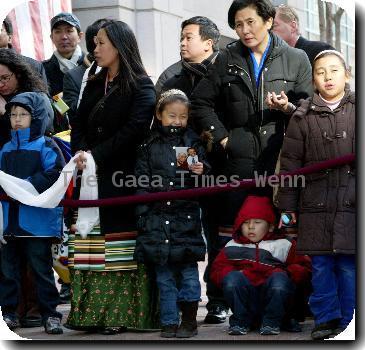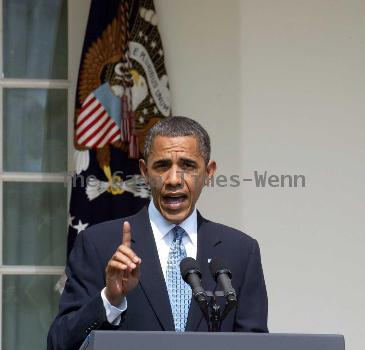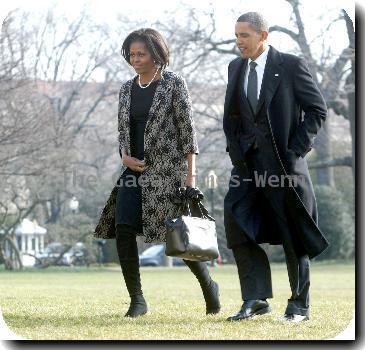Some at-risk Democratic lawmakers line up with Republicans on extending Bush-era tax cuts
By Laurie Kellman, APTuesday, September 14, 2010
Some Dems wary of leaving out rich from tax cuts
WASHINGTON — Congressional Democrats on Tuesday wrestled over whether to abandon President Barack Obama’s tax cut plan, with some House moderates joining Republicans in calling for an extension of Bush-era breaks for the wealthy as well as middle-income earners.
But Senate Majority Leader Harry Reid of Nevada and House Speaker Nancy Pelosi remained solidly behind Obama’s proposal to allow tax cuts for upper-income people to expire as scheduled at the end of the year. From lunchtime into the evening, the leaders met behind closed doors with members concerned that voters would punish Democrats on Election Day if tax cuts are extended for some Americans, but not all.
“We are in listening mode,” said Rep. Chris Van Hollen of Maryland, chief of the House Democrats’ campaign committee.
What they heard Tuesday on both sides of the Capitol indicated divisions among Democrats that contrasted with strong unity among Republicans in supporting a full renewal of all tax cuts, regardless of income, despite a 10-year cost to the government of about $700 billion above Obama’s plan. Still, House Republican leader John Boehner said over the weekend he would vote to extend the relief for only middle-income Americans if that were the only option available.
Some House Democrats, particularly moderates facing difficult re-election battles in districts carried by GOP presidential nominee John McCain two years ago, agree with a proposal offered by Republicans for a short-term renewal of all of the Bush-era tax cuts.
“We look forward to working with you to extend all income tax rates,” a small group of conservative-to-moderate House Democrats wrote in a draft letter to party leaders as lawmakers trickled back into town Tuesday from their summer break.
Democratic Reps. Jim Matheson of Utah, Melissa Bean of Illinois and Glenn Nye of Virginia were circulating the letter for more signatures Tuesday afternoon and were picking up support.
“Don’t raise taxes in a recession,” said Earl Pomeroy, D-N.D.
This was not the debate Democrats wanted as the midterm election season opened. The plan was to make an extension of the middle-class tax cut the party’s closing argument — against Republicans, not each other — as voters began to focus on whether they trust Democrats to improve the ailing economy enough to reward them with control of Congress for another two years.
More broadly, some Democrats were nervous about casting a difficult vote on taxes before Election Day — in the wake of bruising votes on health care and global warming, among other matters. Some Democratic political professionals, however, think taxes are a good issue to define for voters the differences between the parties by casting Republicans as siding with wealthier people in the tax debate.
Still, some endangered lawmakers wanted to punt the issue until after the election, when Congress is all but certain to convene in a last-minute “lame duck” session.
Reflecting the uneasiness, party floor leader Steny Hoyer of Maryland would not commit to scheduling a vote on taxes before Election Day, Nov. 2.
“We’ll have to see … over the next week or so what happens here and in the United States Senate and then we’ll have a better idea of how we can proceed,” Hoyer told reporters.
Sen. Dick Durbin of Illinois, the No. 2 Democrat in the Senate, said members in his party have just started grappling with the issue. Party leaders, he said, haven’t made any decisions about when to call a vote on competing tax plans or what exactly the Democratic version would do.
Durbin said most Democrats support Obama’s plan to allow income tax rates on family income exceeding $250,000 to rise to as high as 39.6 percent. But he also said some want to raise the amount of income exempted from the higher rates above the $250,000 figure advocated by Obama — while not advocating a full renewal for, say, millionaires.
“Some people think it should go beyond $250,000, but how much and for what period of time is still being debated,” Durbin told reporters.
The cost of extending the tax cuts for everyone for the next 10 years would approach $4 trillion, according to congressional estimates. Eliminating the breaks for the top earners would reduce that bill by about $700 billion. A one-year extension of the lower rates for high-income earners would cost the government $39 billion.
Durbin also said he advocates giving Senate Minority Leader Mitch McConnell a vote on legislation the Kentucky Republican introduced on Monday to permanently extend the Bush-era tax cuts regardless of income level.
“Sen. McConnell has spelled out what his caucus stands for — an unpaid-for permanent extension of tax cuts, which will add some $4 trillion to the national debt. That’s his position and he is deserving of a vote on that,” Durbin said. “And we are deserving, I think, of a vote on tax cuts extended to $250,000 and more.”
Durbin predicted that if the Obama plan comes to a vote, Republicans would blink and not filibuster the measure.
Tags: 2010 United States General Election, Barack Obama, Events, General Elections, North America, Political Organizations, Political Parties, United States, United States General Election, Washington






